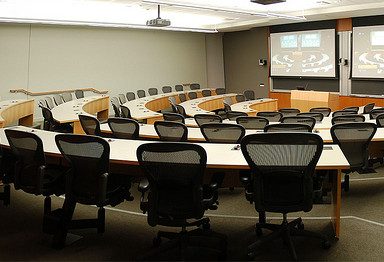
Michelle Peterson Consulting (MPC) provides training services specifically designed for professionals involved in child abuse investigations. Training participants may include law-enforcement officers and detectives, child protective service personnel, forensic interviewers, and district attorneys. Michelle’s training is based on the most current research-based protocols and practices, as well as knowledge obtained from 20 years of participating in child abuse investigations. Michelle can capably prepare professionals to conduct legally defensible interviews and to feel confident in their skills. Our individualized or small-group training can be customized to meet the needs of the individual client or agency. Michelle is Peace Officers Standards & Training (POST) certified in Colorado.
MPC Training Curriculum Includes:
- Forensic Interviewing Training and Mentoring (Beginning to Advanced)
- Minimal Facts Protocol
- Credibility Assessment for Forensic Interviews
- Interviewing the Reluctant Child
- Developing and Maintaining a High-Quality Forensic Interviewing Department
- Memory and Suggestibility
- The Process of Disclosure
- Issues in the Forensic Interview
- Developmentally Appropriate Interviews
- Homicide or Violent Crime Witness Interviews
Forensic Interviewing Training and Mentoring
Michelle Peterson Consulting (MPC) offers mentoring, coaching, and training for forensic interviewers at all levels. We understand what it takes to be a successful and effective forensic interviewer, and we provide the pathway and tools for clients and their organizations to do the same. Our training is focused and succinct and will quickly raise the effectiveness of the client’s interviewing skills. Whether one-on-one or within a small group, we will teach the fundamentals and tools necessary to conduct legally defensible interviews.
Minimal Facts Protocol
Michelle Peterson Consulting (MPC) has expertise in training investigators and first responders to talk to children on-scene to gather the most essential information. To avoid multiple interviews of child victims, this “minimal facts” interview is essential. In addition, it facilitates consistency among interviewers and uniformity between interviews.
Credibility Assessment for Forensic Interviews
Investigators who observe forensic interviewers often lack training on what a credible interview should look like or what information it should obtain. This training educates investigators on what to look for and how to use that information when taking a case forward. In addition, the training assists interviewers in making sure they are asking the questions that matter.
Interviewing the Reluctant Child
Not every child is a willing participant in a forensic interview. This training provides the necessary skills to obtain the details and remain credible.
Developing and Maintaining a High-Quality Forensic Interviewing Department
Over many years of working with child advocacy centers, Michelle has seen the rise and fall of many forensic interviewing departments. This training helps clients create an environment of confidence, credibility, and continued growth. To have a successful child advocacy center, it’s essential to have a highly regarded forensic interviewing department.
Memory and Suggestibility
Knowing the capabilities of a child’s memory is crucial when interviewing victims and/or witnesses of abuse. Also, being aware of their suggestibility and learning to address it in an interview can have lasting effects on a case. This training teaches clients how to handle both so that the case investigation and prosecution can go forward.
Issues in the Forensic Interview
In a forensic interview, many unexpected things can occur that could potentially derail the interview. This training teaches interviewers what to do and how to move forward—and how to ultimately defend the interview.
